Samsung wins first 2 nm AI chip order from Japan’s PFN; a snub to TSMC
PFN’s switch to Samsung for advanced foundry will open the door for the Korean chipmaker to win bigger clients
By Feb 16, 2024 (Gmt+09:00)
LG Chem to sell water filter business to Glenwood PE for $692 million


KT&G eyes overseas M&A after rejecting activist fund's offer


Kyobo Life poised to buy Japan’s SBI Group-owned savings bank


StockX in merger talks with Naver’s online reseller Kream


Meritz backs half of ex-manager’s $210 mn hedge fund


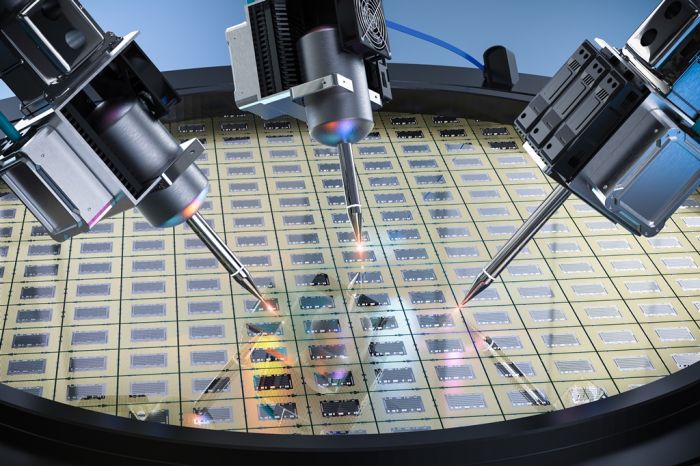
Samsung Electronics Co., the world’s largest memory chipmaker, has won its first 2-nanometer node artificial intelligence chip production contract from Japanese startup Preferred Networks Inc. (PFN) – a big win over Taiwan Semiconductor Manufacturing Co. (TSMC) in the race for advanced chip processing technology.
Under the deal, Suwon, South Korea-based Samsung will make AI accelerators and other AI chips with its latest 2 nm chip processing tech for PFN, industry sources said on Friday.
PFN has been collaborating with TSMC since 2016 but it decided to produce its next-generation AI chips on Samsung’s 2 nm node, a person familiar with the matter said.
The deal benefits both parties as PFN can gain access to newer chip technologies that will allow it to get an edge against the competition, while Samsung has secured an actual customer for its most advanced chip tech, gaining ground in its foundry market battle with TSMC, sources said.
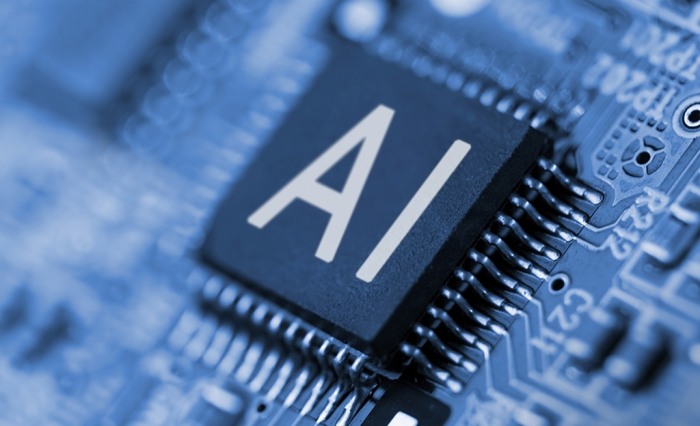
Established in 2014, PFN is known for its expertise in AI deep learning development and has attracted large-scale investments from major companies, including Toyota Motor, NTT and FANUC, a Japanese robot system maker.
Sources said PFN decided to forgo TSMC as Samsung provides a comprehensive chip-making service on a turnkey basis, from chip design to production and advanced chip packaging.
Samsung officials declined to confirm its deal with PFN.
DEAL OPENS DOOR FOR MORE 2 NM CLIENTS
Analysts said while TSMC currently has more 2 nm clients, PFN's switch to Samsung could signal a reversal in Samsung’s favor, opening the door for more big clients to side with the Korean chipmaker.
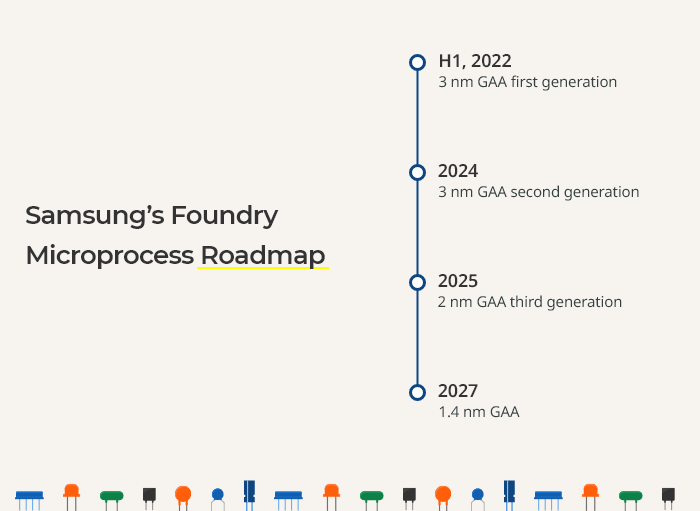
TSMC is the leader in the contract chipmaking arena, grabbing the most business from fabless chip designers such as Apple Inc. and Qualcomm Inc.
With the demand for high-performance chips rising, competition for technology advancement is fierce, particularly between TSMC and Samsung.
The Taiwanese chipmaker is ahead of Samsung by providing chips made with its 2 nm tech to clients such as Apple and Nvidia. TSMC aims to begin mass production of chips with 2 nm tech in 2025.
Samsung also said it will begin mass production of the 2 nm process for mobile applications in 2025 before expanding to other uses in later years.
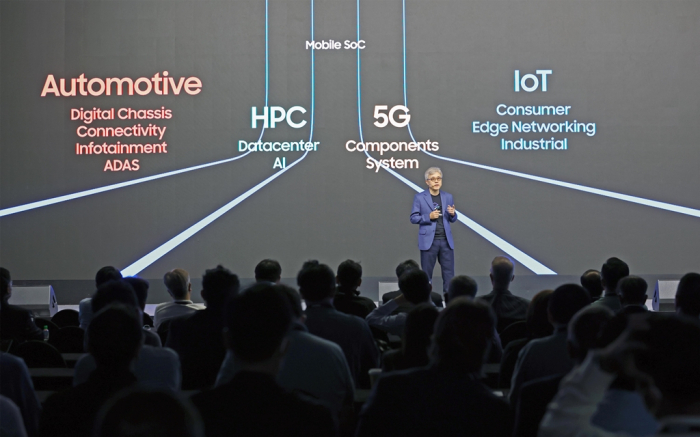
Samsung said it will apply the advanced 2 nm technology to high-performance computing (HPC) chips for supercomputers and computer clusters in 2026 and then to automotive chips in 2027.
Chipmaking processes carry a numerical label that loosely denotes the size of the transistors that can be packed on a chip. The number refers to the thickness of the circuitry that can be drawn on the transistor. The lower the number, the more advanced the technology.
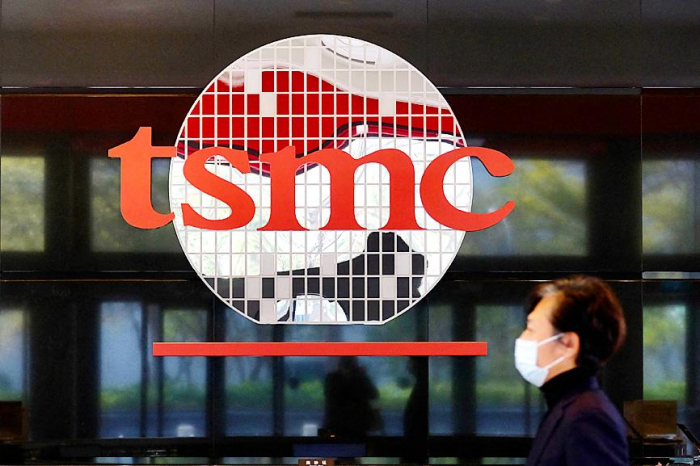
While Samsung’s production tech is based on GAA transistor architecture for its microfabrication process, TSMC uses a different technology in the fin field-effect transistor (FinFET) structure.
“From the 2-nanometer node, the foundry leader will also adopt the GAA technology. We will overtake TSMC with our tech within the next five years,” Kyung Kye-hyun, chief of Samsung’s Device Solutions division that oversees semiconductors, said at a forum in Korea last year.
Write to Jeong-Soo Hwang at hjs@hankyung.com
In-Soo Nam edited this article.
-
 Korean chipmakersSamsung narrows gap with TSMC in foundry market share
Korean chipmakersSamsung narrows gap with TSMC in foundry market shareSep 06, 2023 (Gmt+09:00)
3 Min read -
 Korean chipmakersSamsung on smooth track to 1.4 nm foundry tech to take on TSMC
Korean chipmakersSamsung on smooth track to 1.4 nm foundry tech to take on TSMCJun 28, 2023 (Gmt+09:00)
4 Min read -
 Korean chipmakersSystem on chips: Samsung’s new high-stakes foundry business
Korean chipmakersSystem on chips: Samsung’s new high-stakes foundry businessMar 09, 2023 (Gmt+09:00)
2 Min read


